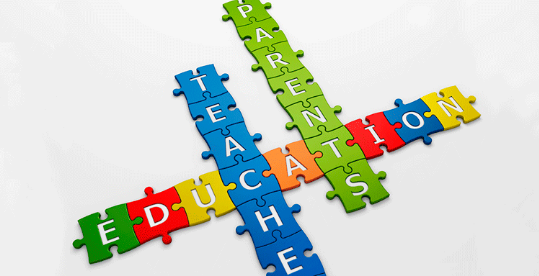PARENTS AS PARTNERS IN EDUCATION
By Luke McKenna
This year, I have jumped the fence! I have now joined many educators who experience schools from both sides of the fence- as an educator and as a parent.
With many schools hosting Parent Education sessions in coming weeks, it has got me thinking: What few pieces of advice would I want to share with the parents?
Most parents do want to be partners in educating their kids, so here’s what I would love for them to know. Feel free to share your own thoughts on these ideas in newsletters or at parent evenings.
· Praise kids for their effort, not their performance (but only do it when the child actually deserves it- our praise must be authentic). Parents might like to read this post, I published last year. Plenty of good stuff on growth mindsets, and let parents be partners with this one.
· Let kids struggle (sometimes). We all want to help kids be more resilient and persistent- more gritty. Sometimes, as parents and teachers we can be too eager to help. Don’t finish their sentences and carry their school bags for them. When it comes to building young people who stick with tough things, life is a good teacher. In a modern society where trampolines have nets and no springs, and when every layer gets a prize in pass the parcel, we must be willing to let kids struggle in the little things some times. Wilson McCaskill suggests that “for kids to develop perseverance, they need to be challenged by things that make them want to give up.” If we jump in and help too soon, we can take away any chance the child has to hang in there and do it on their own.
At the same time, give them opportunities to stretch their skills and be successful at something. Scaffolding is good, and the gradual release of responsibility is a useful mental model in this regard. There is certainly a balance here, and I know it’s not easy to get it right. But the point is: a lack of support for children is not helpful, while too much support inhibits growth. They will get some answers wrong, they will mess up. Support them, love them and let them have a go at tasks that will challenge them. They might surprise you- and even if they don’t- they’ll learn about the process of sticking with things, struggling and working at it. They might even learn a little about disappointment- and that’s not the end of the world.
· Turn off laptops / TV screens at a regular (and reasonable) time each evening- a few hours before bed is ideal. An article published in the Proceedings of the National Academy of Sciences concludes that the blue light emitted from these devices suppresses the release of melatonin, which prolongs the time it takes to fall asleep, delays the circadian clock, suppresses levels of the sleep-promoting hormone melatonin, reduces the amount of REM sleep, and reduces alertness the following morning. This may have adverse effects on performance, health and safety.
· Attendance matters: 1 day absent per week adds up to 40 days per year. This equates to 2.5 years during their 13 years at school- or the equivalent of finishing school half way through year 10.
It must be said that not all of these bullet points would be as pertinent in every school setting. You’re the expert when it comes to your school, your students and your parent community. Let them know what they need to know for their context. But be proactive in educating the parents, and let them know how they can be good partners in the education of their kids. Because excellence in education is everyone’s responsibility.
What do you think?
What will you be sharing with parents to help them be great partners in the education of their kids?
Feel free to email me back with your thoughts, or share this with your colleagues.

